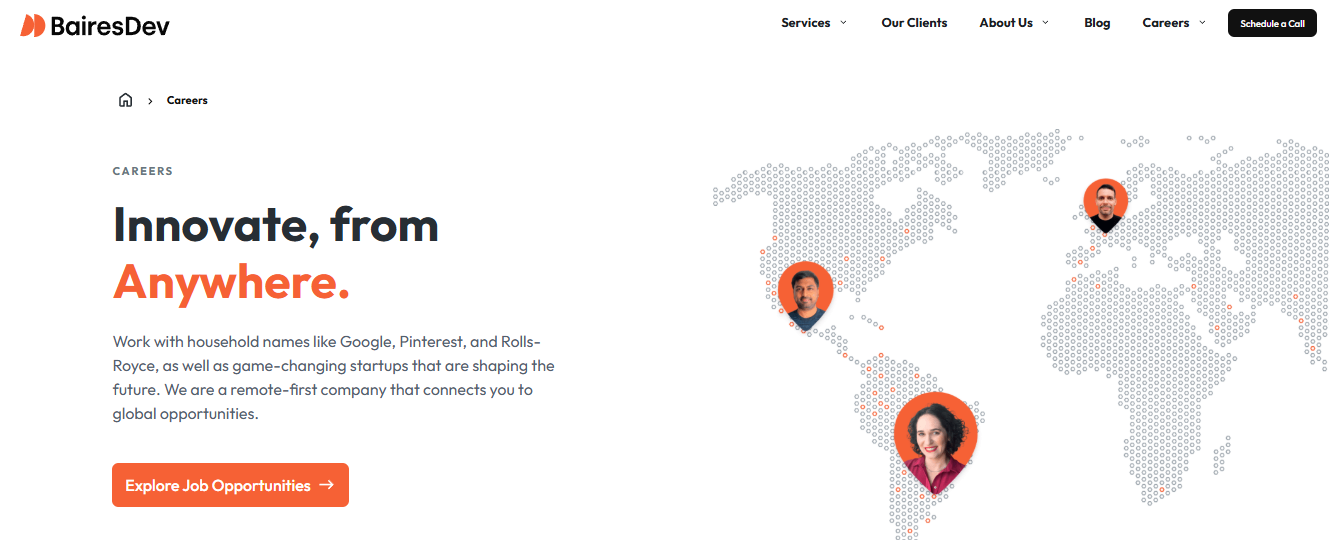How to Get Started: Education and Essential Skills
Starting a career in software engineering requires a strong foundation in both education and technical skills. Here’s a step-by-step guide to help you begin your journey.
1. Choose the Right Educational Path
- University Degree: A bachelor’s degree in Computer Science, Software Engineering, or a related field is the most common route.
- Bootcamps: Coding bootcamps offer an intensive, short-term learning experience focused on practical skills.
- Self-Learning: Many successful software engineers are self-taught using online courses, tutorials, and documentation.
2. Learn Essential Programming Languages
- Start with foundational languages like Python, Java, JavaScript, or C++.
- Gain proficiency in front-end (HTML, CSS, JavaScript) and back-end (Node.js, Java, C#) development.
3. Develop Problem-Solving and Algorithmic Thinking
- Learn data structures and algorithms (arrays, linked lists, trees, graphs, sorting, searching, etc.).
- Practice coding problems on platforms like LeetCode, HackerRank, and CodeSignal.
4. Work on Personal and Open-Source Projects
- Build projects to showcase your skills (web apps, mobile apps, APIs, automation scripts).
- Contribute to open-source projects on GitHub to gain experience collaborating with others.
5. Gain Hands-On Experience with Development Tools
- Learn version control using Git and GitHub.
- Get familiar with IDEs like Visual Studio Code, IntelliJ IDEA, or Eclipse.
- Understand software development methodologies like Agile and Scrum.
How to Progress: From Entry-Level to Mid-Level Roles
Once you have the basics covered, the next step is to gain professional experience and move up the career ladder.
1. Secure Your First Job or Internship
- Build a strong resume and LinkedIn profile showcasing your skills and projects.
- Apply for internships or junior developer roles.
- Prepare for technical interviews by practicing coding challenges and system design.
2. Gain Real-World Experience
- Work on real-world projects and collaborate with teams.
- Learn debugging and testing techniques.
- Understand software development lifecycle (SDLC) and best practices.
3. Specialize in a Technology or Domain
- Choose a focus area such as web development, mobile development, cybersecurity, AI, or cloud computing.
- Obtain relevant certifications (e.g., AWS Certified Developer, Google Cloud Engineer, Microsoft Azure).
4. Improve Soft Skills and Communication
- Enhance problem-solving, teamwork, and leadership skills.
- Learn to write clear documentation and present your ideas effectively.
- Participate in tech meetups, hackathons, and conferences.
5. Take on More Responsibility
- Volunteer for challenging tasks and projects.
- Mentor junior developers to solidify your knowledge.
- Show initiative in improving processes and optimizing codebases.
By following these steps, you can build a strong foundation and successfully progress in your software engineering career. Stay curious, keep learning, and adapt to new technologies to remain competitive in the industry.
How to Advance: Becoming a Senior Engineer or Leader
1. Master Advanced Technical Skills
- Deepen your expertise in data structures, algorithms, and system design.
- Learn scalable architecture and cloud computing (AWS, Azure, Google Cloud).
- Gain experience with DevOps tools like Docker, Kubernetes, and CI/CD pipelines.
2. Gain Industry Experience and Business Acumen
- Work on high-impact projects that solve real-world problems.
- Develop a solid understanding of software development lifecycles (SDLC).
- Align technical decisions with business goals and objectives.
3. Improve Leadership and Mentorship Abilities
- Take initiative in leading projects and mentoring junior developers.
- Strengthen communication skills for cross-functional collaboration.
- Learn to provide constructive feedback and facilitate code reviews.
4. Obtain Certifications and Continue Learning
- Acquire relevant certifications such as AWS Certified Solutions Architect or Certified Kubernetes Administrator.
- Stay updated with emerging technologies through conferences, blogs, and online courses.
- Consider pursuing a Master’s degree or MBA for a broader leadership perspective.
5. Transition to Leadership Roles
- Move towards roles like Tech Lead, Engineering Manager, or CTO.
- Develop strategic thinking and decision-making skills.
- Advocate for engineering best practices and team growth.
How to Stay Ahead: Future Trends and Growth Opportunities
1. Embrace Emerging Technologies
- Stay informed about trends like AI, blockchain, quantum computing, and cybersecurity.
- Experiment with machine learning frameworks and edge computing solutions.
2. Focus on Continuous Learning
- Engage in lifelong learning through professional courses, workshops, and certifications.
- Participate in open-source communities and contribute to industry innovations.
3. Adapt to Remote and Hybrid Work Models
- Improve skills in remote collaboration tools (Slack, Zoom, Jira, Trello).
- Learn to manage distributed teams effectively.
4. Develop a Strong Professional Network
- Attend tech conferences, hackathons, and networking events.
- Engage in mentorship programs and industry discussions.
5. Stay Agile and Open to Change
- Embrace agile methodologies and DevOps practices.
- Be proactive in adapting to new industry standards and best practices.
By staying ahead of technological advancements and continuously developing your leadership skills, you can sustain long-term growth and success in your software engineering career.
Conclusion: How to Build a Successful Software Engineer Career Path
- How to Get Started: Education and Essential Skills
- Importance of Foundational Knowledge: A strong educational background in computer science or a related field is crucial. Gaining proficiency in coding languages such as Python, Java, and C++ sets the stage for future learning and specialization.
- Acquiring Soft Skills: Alongside technical know-how, developing communication, problem-solving, and teamwork skills is essential. These traits help in navigating collaborative work environments and tackling complex challenges effectively.
- How to Progress: From Entry-Level to Mid-Level Roles
- Building Professional Experience: Gaining experience through internships, junior roles, or freelance projects is the stepping stone to advancing in the field. Engaging in diverse projects hones practical skills and expands one’s professional portfolio.
- Continuous Learning and Networking: Staying updated with industry trends, attending seminars, and being active in professional communities fosters growth. Networking with peers and mentors can open doors to new opportunities and career advancements.
- How to Advance: Becoming a Senior Engineer or Leader
- Mastery and Specialization: To move into senior roles, achieving mastery in specific areas of software engineering, such as machine learning, cybersecurity, or cloud computing, is imperative. Deep expertise distinguishes one from peers and showcases readiness for advanced responsibilities.
- Leadership and Mentorship: Developing leadership skills and taking on mentorship roles within teams promotes career advancement. Leading projects and guiding junior engineers demonstrates readiness for managerial or technical lead positions.
- How to Stay Ahead: Future Trends and Growth Opportunities
- Embracing Emerging Technologies: Staying abreast of emerging technologies like artificial intelligence, blockchain, and the Internet of Things ensures continued relevance in the industry. Adapting to new tools and methodologies keeps skills sharp and applicable.
- Pursuing Lifelong Learning: Engaging in lifelong learning through courses, certifications, and professional development programs is vital. The dynamic nature of the tech industry requires a commitment to continuous self-improvement and adaptability.
By following these steps and maintaining a proactive approach to professional development, software engineers can build successful and fulfilling career paths. The journey demands dedication, continuous learning, and adaptability, but the rewards of contributing to cutting-edge technologies and innovative solutions make it a worthwhile endeavor.
SEA1/10K




